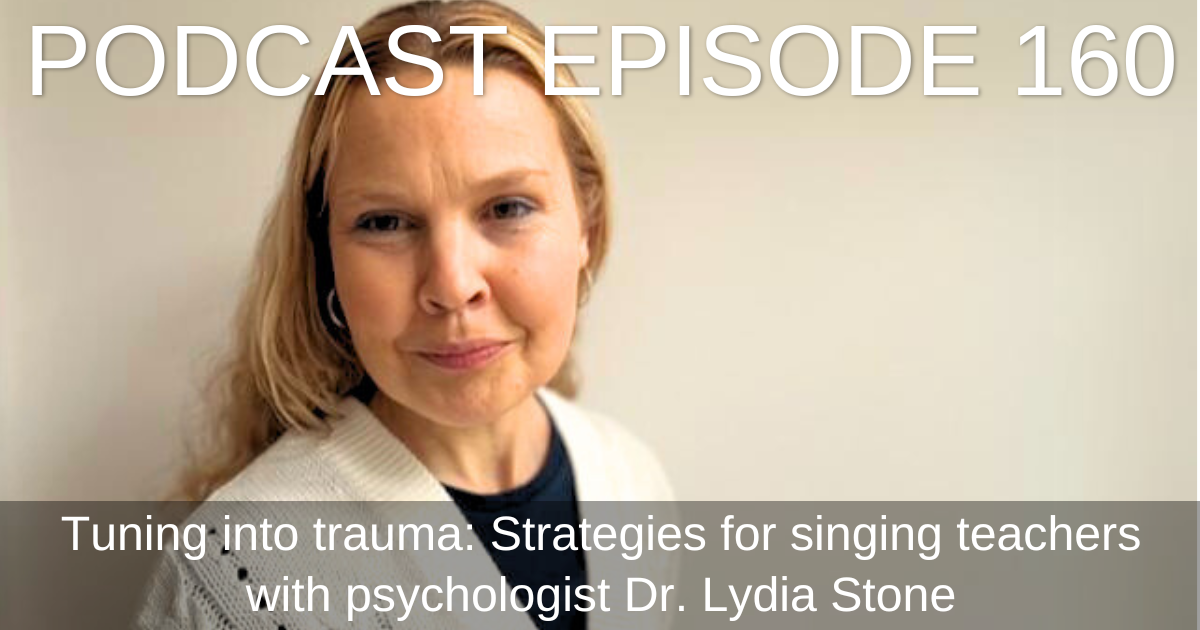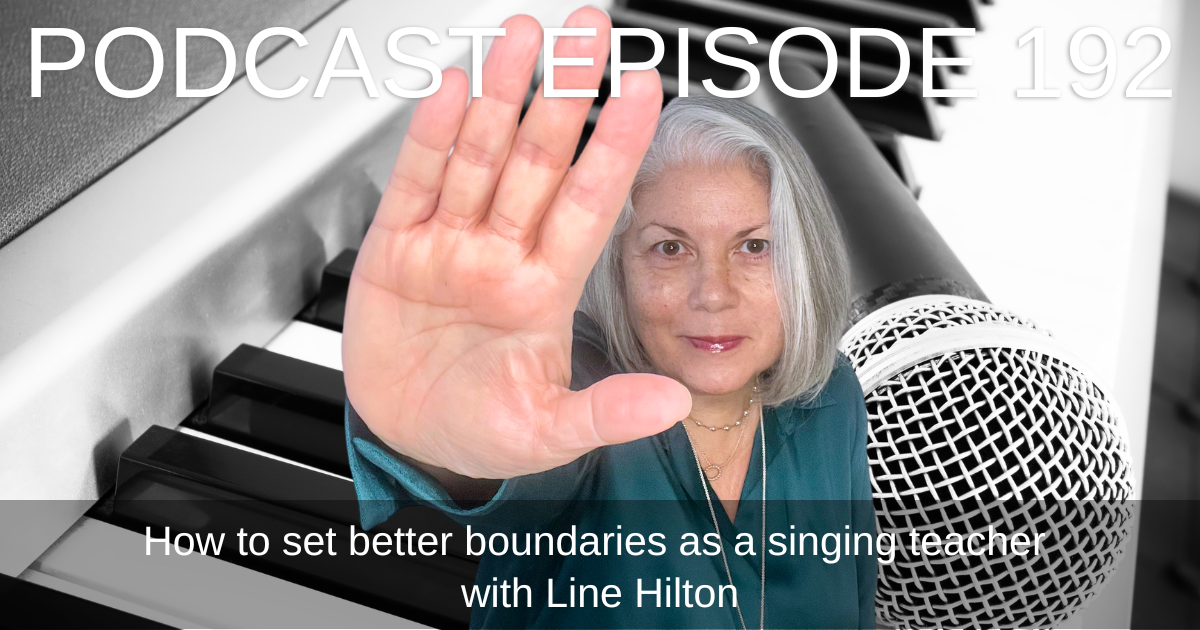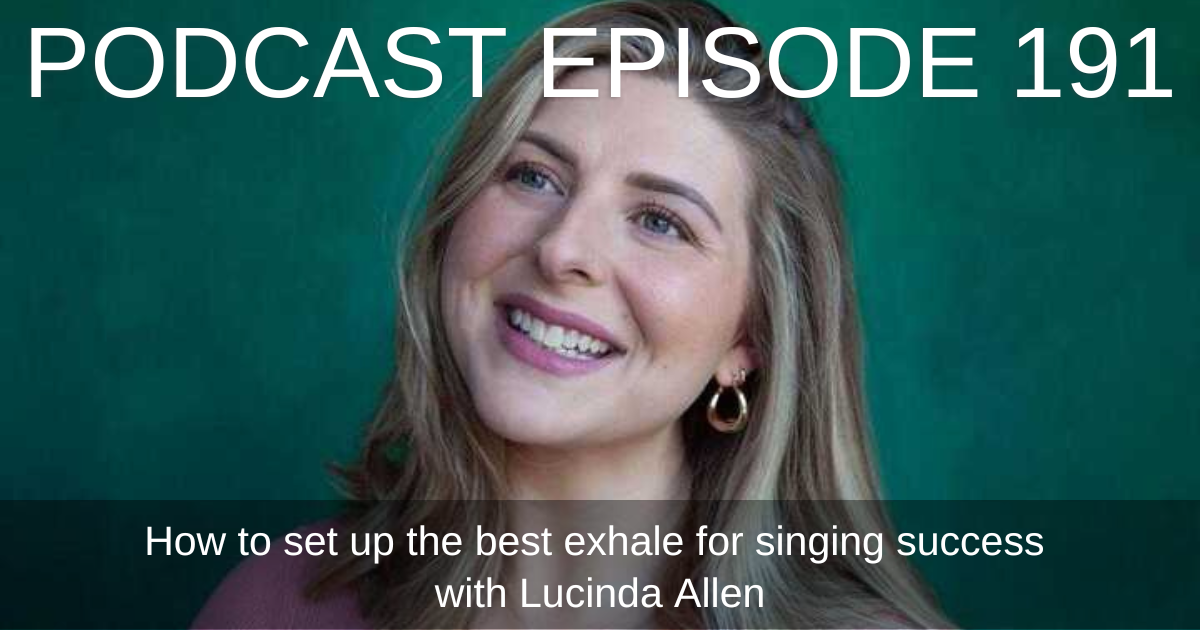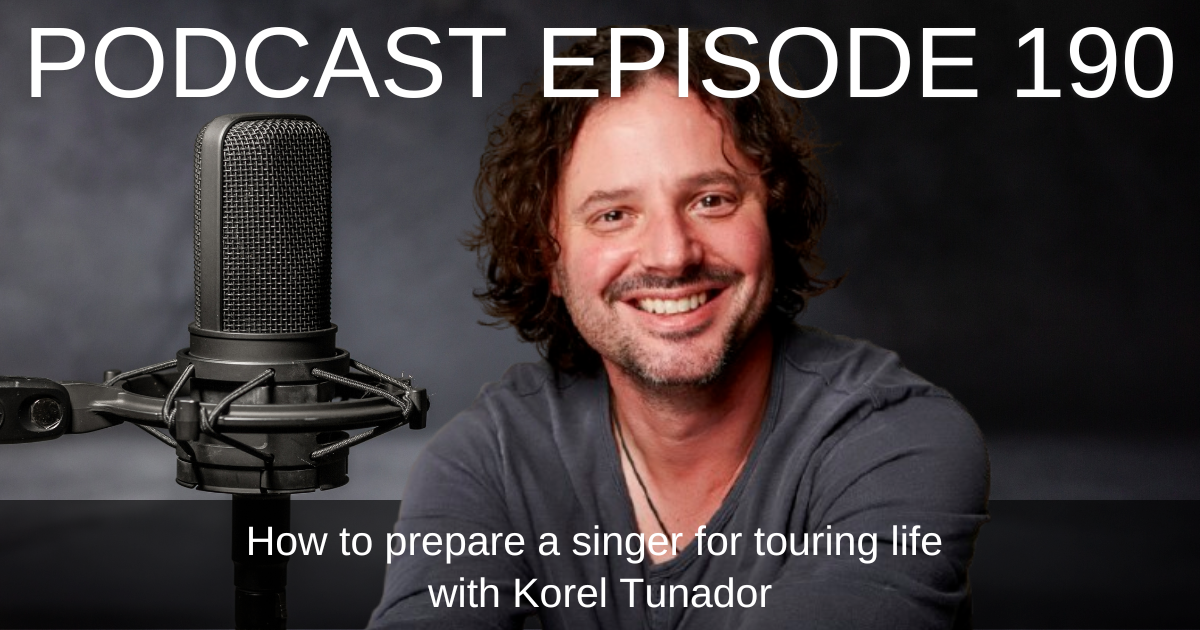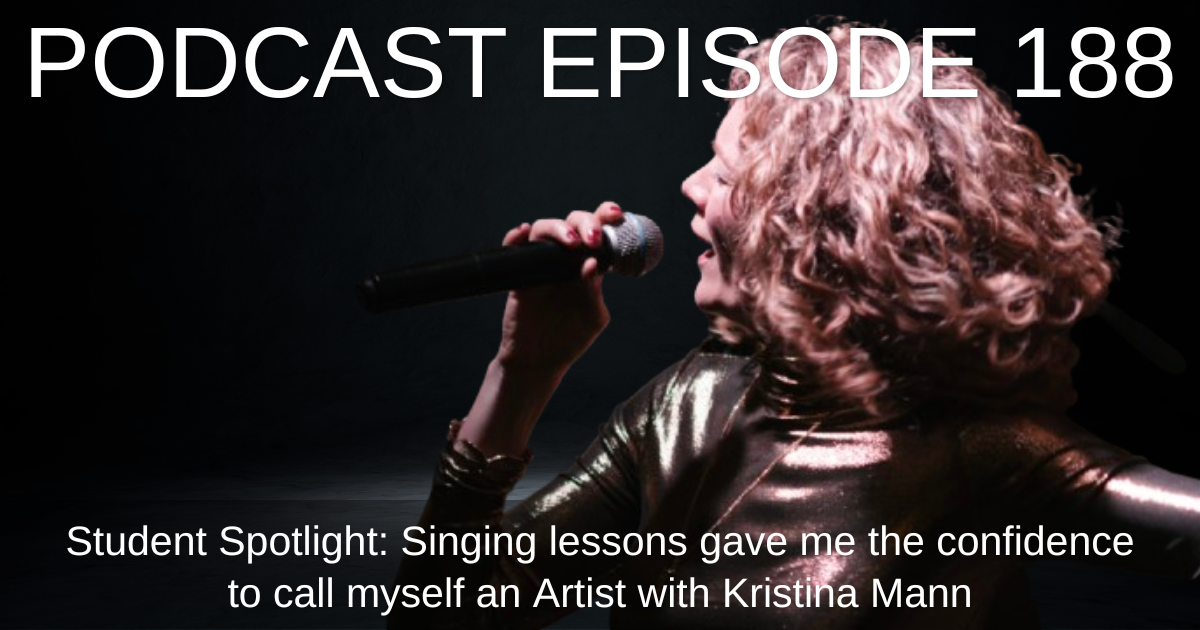In this week’s episode Chartered Clinical Psychologist, Dr. Lydia Stone, joins Alexa Terry to discuss the topic of trauma. Lydia specialises in working with fostered and adopted children and families, she also runs a choir and is currently on the BAST Training Level 5 qualification course. Lydia explains the potential impacts of trauma on the singer, and helps us understand how we can conduct more trauma-informed singing lessons.
KEY TAKEAWAYS
- When conducting trauma-informed singing lessons, it’s essential to approach each session with empathy and sensitivity towards the experiences of the singers. While it’s important to acknowledge the potential presence of trauma, it’s equally crucial not to assume or pry beyond professional boundaries.
- Using recording and analysis tools during lessons can provide valuable feedback without overwhelming the singer or detracting from the session’s focus. Concentrating on physical cues, such as mouth movements, can enhance communication and instruction.
- Familiar exercises like scales aid vocal technique. Gradually introduce minor scales for challenge. Connecting major and minor patterns enhances musical understanding. Encourage musical literacy and instrumental skills for independence.
- Positive reinforcement fosters confidence and growth while avoiding criticism preserves the singer’s emotional well-being. Patience is key, allowing singers to progress at their own pace and respecting their boundaries.
- It’s crucial to have resources available if singers require further support outside of the lesson. This could include referrals to counselling or other mental health services. By offering a holistic approach to singing education, teachers can empower their students not only as musicians but also as individuals capable of overcoming challenges and reaching their full potential.
BEST MOMENTS
“Trauma responses impact muscle tension and vocal control”
“Accept and empathise but maintain professional boundaries”
“Self-care helps teachers support singers’ mental health”
EPISODE RESOURCES
- The Body Keeps the Score by Bessel van der Kolk
- Singing Teachers Talk Podcast Ep.147 TV Vocal Coach: Behind the Scenes on ITV’s Mamma Mia with Claire Delaney ]Dr Shannon Coates: Dr Shannon Coates
- Singing Teachers Talk: Eps. 155 & 156 – Building Neurodiversity-Inclusive Voice Studios with Dr Shannon Coates
- PACE: Playfulness, Acceptance, Curiosity, Empathy
- Vocal Health Education: Vocal Health Education
- The work of Petra Raspel Borzynski
- NSPCC: nspcc.org.uk
- UK Trauma Council: UK Trauma Council
- Beacon House: Resources
- Attach Team (Oxfordshire): The ATTACH team | Oxfordshire County Council
Contact Dr Lydia Stone directly: drlydiastone@gmail.com
ABOUT THE GUEST
Dr Lydia Stone is a Chartered Clinical Psychologist, who started her career with a choral scholarship at Cambridge University before completing her doctorate at Surrey University. Having an interest in trauma from an early stage, her professional work has taken her from London and the south of England as far afield as Tanzania and Bangladesh. She now specialises in work with fostered and adopted children and families in Oxford. This includes using Cognitive Behavioural Therapy, Dyadic Developmental Psychotherapy and Video Interaction Guidance.
Throughout this time, she has continued her interest in singing, eventually finding her musical and spiritual home in Gospel music; and she was a long-time member of Soul Sanctuary Gospel Choir (www.soulsanctuarygospel.com). Leaving that role to focus on family life, she now directs Tyndale Community Gospel Choir (www.tyndalegospel.fun) as well as choral groups at a local primary school. In the midst of this, she somehow squeezes in studying for the BAST Level 5 Singing Teacher Qualification.
